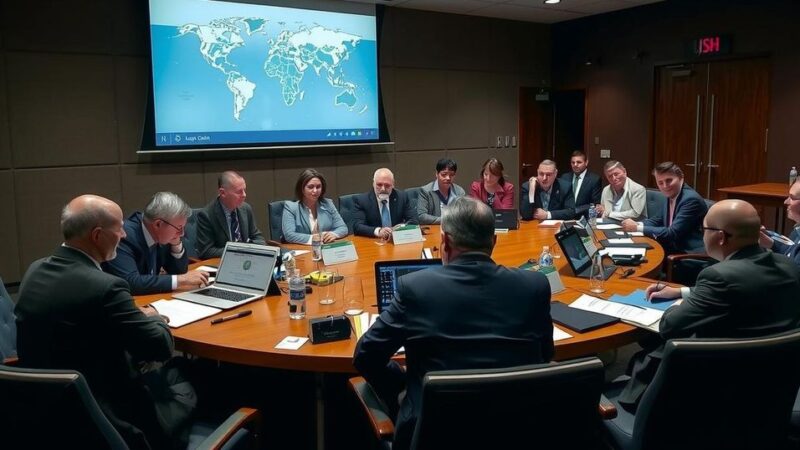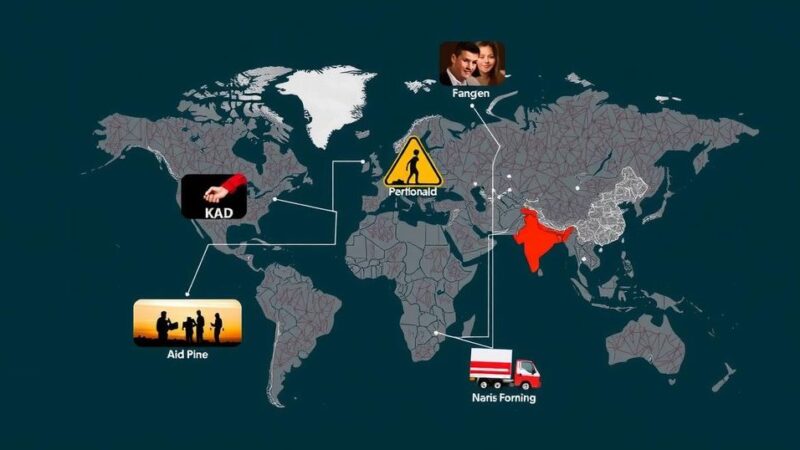The Latam Insights report outlines three major developments in Latin America: Argentina’s exit from the UN’s Pact for the Future, President Nayib Bukele’s warnings about global decline from the UN General Assembly, and a surge in cryptocurrency purchases in Brazil, which have totaled over $12 billion to date.
In the recent issue of Latam Insights, pivotal developments in Latin America concerning cryptocurrency and international relations are highlighted. Notably, Argentina has distanced itself from the United Nations’ Pact for the Future, also referred to as the 2045 Agenda. This resolution, which was endorsed by 193 nations, encompasses various critical actions aimed at addressing contemporary challenges such as social media regulation, artificial intelligence oversight, climate initiatives, and the enhancement of global governance. Argentina’s Foreign Minister, Diana Mondino, indicated that past administrations had supported the country’s involvement in the pact; however, the present government has opted to withdraw due to conflicting views on many topics within the resolution. She elaborated, “Nevertheless, we proposed constructive actions that were not always taken into account, and that led to us deciding to dissociate ourselves from the pact.” Despite this withdrawal, Mondino reaffirmed Argentina’s commitment to addressing emergent humanitarian issues while emphasizing the necessity for sovereignty in their governance approaches. In another significant development, El Salvador’s President Nayib Bukele delivered a stark warning regarding the trajectory of the Western world at the recent UN General Assembly. He asserted that El Salvador could potentially serve as a refuge in the face of an impending “new dark age.” Bukele showcased the nation’s accomplishments, including improvements in security and tourism, contrasting them with the deteriorating conditions seen in parts of the so-called free world. He mentioned that,” now Salvadorans could be free in their streets, while in cities of the so-called free world, these have been taken by drugs, homelessness, and petty crime.” This juxtaposition underscores his belief that nations which impose social media censorship and limit freedoms are leading their societies into regression. Lastly, the Brazilian cryptocurrency market has experienced a remarkable surge, with purchases exceeding $12.37 billion from January to August of this year, surpassing 2023’s figures. This data from the Central Bank of Brazil reflects an escalating demand for cryptocurrencies, which comprises both issuer-backed assets like stablecoins and decentralized currencies such as Bitcoin. Fernando Rocha, the head of statistics at the Central Bank, noted these numbers represent the trading activities of companies seeking to meet customer demand. This burgeoning interest suggests a significant shift in investment behaviors across the region.
In recent years, Latin America has emerged as a critical battleground for cryptocurrency adoption and international policy challenges. Countries in the region are wrestling with the implications of global agendas while grappling with local needs and aspirations. Argentina’s withdrawal from the UN’s Pact for the Future illustrates a growing sentiment of nationalism and the desire for independent governance amid external pressures. Meanwhile, El Salvador’s recognition as a potential haven against regressive global trends highlights the country’s unique position in the region as it gains attention for its cryptocurrency initiatives and security policies. Furthermore, the substantial growth in Brazil’s cryptocurrency purchases signifies a rising trend towards digital assets amidst economic uncertainty and fluctuating local currencies. These developments are redefining the economic landscape in Latin America, signaling a shift towards independence from traditional global frameworks.
In summary, this week’s Latam Insights report elucidates Argentina’s strategic departure from the UN’s 2045 Agenda in favor of self-determined governance. Concurrently, President Nayib Bukele’s remarks underscore both the challenges faced by El Salvador and the nation’s efforts to carve out its path during turbulent times. Additionally, Brazil’s overwhelming increase in cryptocurrency expenditure reflects a growing acceptance and necessity for digital assets in responding to both economic and social challenges. Collectively, these narratives underline a transformative phase in Latin America’s approach to governance, security, and economic participation in the global arena.
Original Source: news.bitcoin.com






